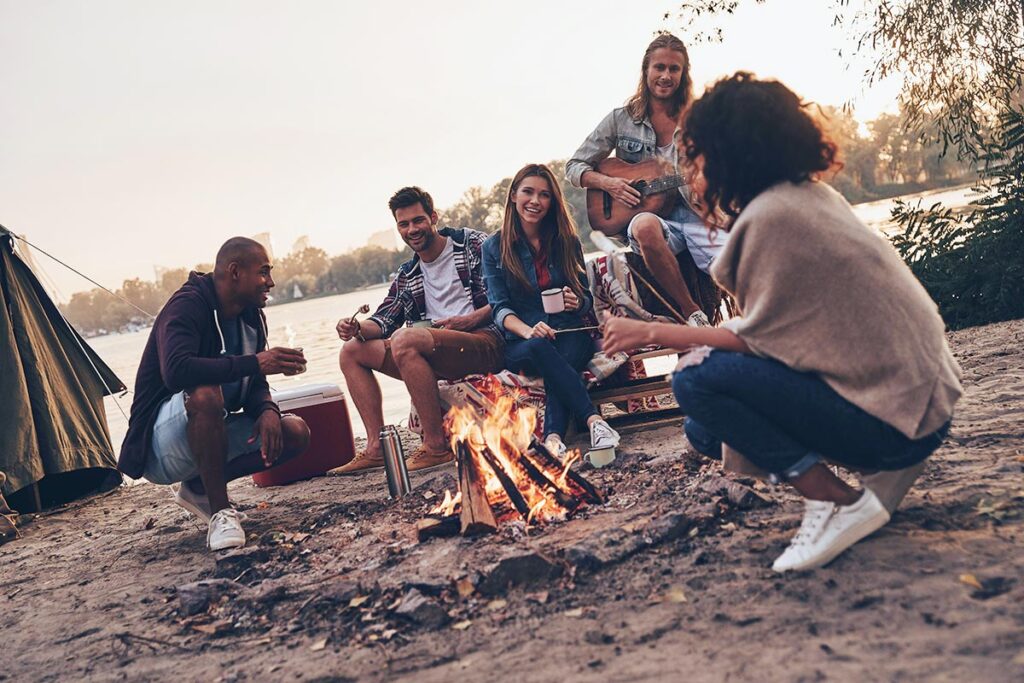If you or a loved one is moving into substance abuse recovery, then sober living is a very strong choice for recovery. Sober living environments like sober homes and halfway homes give you options to live in a structured way, with social support, and with most of your routine and daily structure provided for you. That gives you opportunity to adapt to living and working while clean and sober, time to heal, and an ongoing support network in case you experience cravings or start to struggle.
In fact, the Substance Abuse and Mental Health Services Administration lists sober housing as having a significant impact on people staying sober. However, that same report shows that recovery housing should be social, should promote cultural equality, and should ensure that everyone feels safe, comfortable, and equal in the housing situation. Creating a sense of fellowship between peers is an important part of the recovery process. While that varies depending on the person, here’s why:
Getting Support
Having people around you in a social environment means you get support when you need it. In a sober living home, that means you get multiple kinds of support:
- Structured support from medical professionals and counselors
- Structural support in the form of routines like bedtime, chores, and mealtimes
- Peer support from other people in recovery
The idea is that if you live in a group home, you get to make friends, you share your experiences, and you get to learn and grow based on others. That’s the same reason why most rehab centers force a social model of recovery. Most rehab centers don’t offer private rooms, not because it’s too expensive to offer them but because they want you to be social and to engage with others. Isolating yourself is a large problem in addiction and in recovery, getting out of that by living in a social environment with a roommate, with communal dinner, with communal chores, with group workouts, means you can’t do that. And, that will improve your mental health, it will give you a basis for breaking patterns of self-isolating, and it will mean you get the tools to build relationships because you’ll have more experience doing so.
Finding Encouragement
Living in a sober home means you’re living around a lot of other people on the same journey you are. You’ll also see people who are further on in the journey than you. And, people struggling through and overcoming the same issues you are. That will be encouraging. It will help you find motivation. It will give you insight into what recovery looks like for different people. That can all be extremely important for your being able to move forward. After all, it’s a lot easier to put one foot in front of the other when you can see around you that it improves lives.
After all, if you’re living by yourself, it’s hard to see recovery. It’s hard to see your weight go to normal, your hair to get healthy, to see that you start smiling at little things like flowers or good food – but when you live around others, you can watch as they make that change and see them progress towards recovery. That is encouraging for your own recovery.
Social Accountability
Social accountability is a powerful motivator to stay clean and sober. It’s easy to go “just once” if you just have to go home and no one will ever know about it. But what if you have to stay out until you sober up? Or what if you have to go back to the group and everyone will know you’ve relapsed? What about if you stand up and share whether you’re clean or sober and how many days it’s been since you last took a drink or used every single day? That prospect of having to share that you relapsed is such a big one that it helps many people stay clean and sober. It’s one of the strongest motivators behind groups like AA.
Why does it work? You know people are expecting you to stay clean and sober. You know that many people are relying on good examples and motivation to help them get through. You know that you’re doing this as a group. And, you know that if you relapse, you drag the whole group down. That requires fellowship and feeling like part of the group. However, once you have it, it can be extremely valuable in giving you motivation and inspiration
Coping Skills
Fellowship helps you to build coping skills by giving you coping skills. Fellowship means you’ll talk to your peers. It means you’ll have heart-to-heart discussions. It means you’ll learn how to talk about stress and to relieve it. It means you’ll build up ways to take care of the people around you and therefore yourself. All of that can have an immensely positive impact on your recovery.
Your fellowship can also share skills, help you learn coping mechanisms you weren’t aware of, give you insight into how others deal with the same problems, and give you new outlets and resources. In a sober living environment, that means you need to make friends.
Building a Sense of Purpose
The longer you stay in sober living, the more you’ll find you’re contributing to the group. You might start out just hanging out around the edges of the group or participating in shared meals, but eventually, you’ll be leading talks, organizing, volunteering, and contributing. You can work towards finding a sense of purpose in living in your sober home, and that will help you move forward. For example, many people in addiction recovery immediately want to go out and help others get clean and sober as well. That’s often dangerous because you don’t have the resources to manage cravings when you are exposed to people with substance abuse problems. In a sober home, you can contribute and make that difference by being there for the people around you – just like they are there for you.
Developing Self-Esteem
Being around people dealing with similar problems to you can help you to develop your sense of self image. It can give you a chance to discover that you aren’t so bad. It can give you insight into what you look like from the outside. And, all of that means you can work towards figuring out who you are, what you want to be, and becoming that. Developing friendships and fellowships in sober living environments means you’ll have insight into that and a better model for developing your own self esteem through being a valued part of your community, through understanding the people around you, and through relating yourself to others.
What is Fellowship in Sober Living?
Whether you’re joining a fellowship of a formal and organized group inside of your sober living environment or creating one on an informal basis, fellowships are groups of people that come together to support and help each other towards sobriety. That means making friends, supporting each other, and it means being open to sharing and talking.
If you’re going to a sober home, joining or starting a fellowship is a great idea. That’s true whether it’s AA, informal, or based on another framework. Good luck with your recovery.




